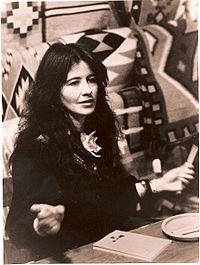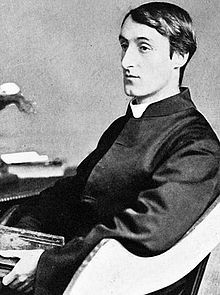Monday March 13
“If anyone stumbles across it,
return it to me, please.”
Last Friday I spent the afternoon visiting with, and an evening listening to, Joy Harjo at the University of Michigan’s Michigan League. Joy emailed on Wednesday to explore the possibility that I could drive to Ann Arbor. It worked out because I had a free afternoon and evening, an unanticipated grace. She read mostly from her most recent book Conflict Resolution for Holy Beings. Listening took me into stillness for c. 2 hours; to the language of her poems and of her flute, and her sax. Definitely worth the 45 mile drive from our campus to Ann Arbor.
That night Joy introduced me to the Chaldean poet Dunya Mikhail. Dunya and I share some of the sprawling space of Metro Detroit and we share the Catholic faith, hers Chaldean, mine 1840’s immigrant European. When I got home, I looked for some of her poetry and found “I Was in a Hurry.”
Best to read out loud, with pauses. It’s snowing here Have a blest week.
john sj
Today’s Post: “I Was in a Hurry”
Yesterday I lost a country.
I was in a hurry,
and didn’t notice when it fell from me
like a broken branch from a forgetful tree.
Please, if anyone passes by
and stumbles across it,
perhaps in a suitcase
open to the sky,
or engraved on a rock
like a gaping wound,
or wrapped
in the blankets of emigrants,
or canceled
like a losing lottery ticket,
or helplessly forgotten
in Purgatory,
or rushing forward without a goal
like the questions of children,
or rising with the smoke of war,
or rolling in a helmet on the sand,
or stolen in Ali Baba’s jar,
or disguised in the uniform of a policeman
who stirred up the prisoners
and fled,
or squatting in the mind of a woman
who tries to smile,
or scattered like the dreams
of new immigrants in America.
If anyone stumbles across it,
return it to me, please.
Please return it, sir.
Please return it, madam.
It is my country…
I was in a hurry
when I lost it yesterday.
“I Was in a Hurry” by Dunya Mikhail, translated by Elizabeth Winslow, from The War Works Hard,
copyright 1993, 1997, 2000, 2005 by Dunya Mikhail. Reprinted by permission of New Directions Publishing Corp.
(http://www.npr.org/2013/03/21/174773962/revisiting-iraq-through-the-eyes-of-an-exiled-poet)








